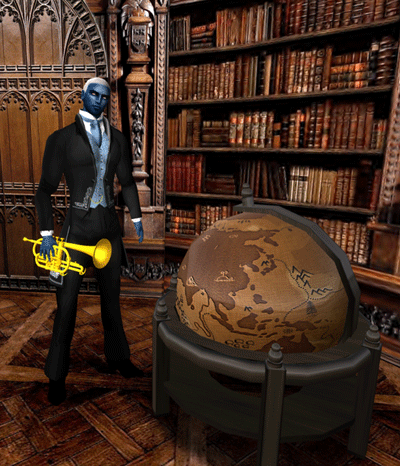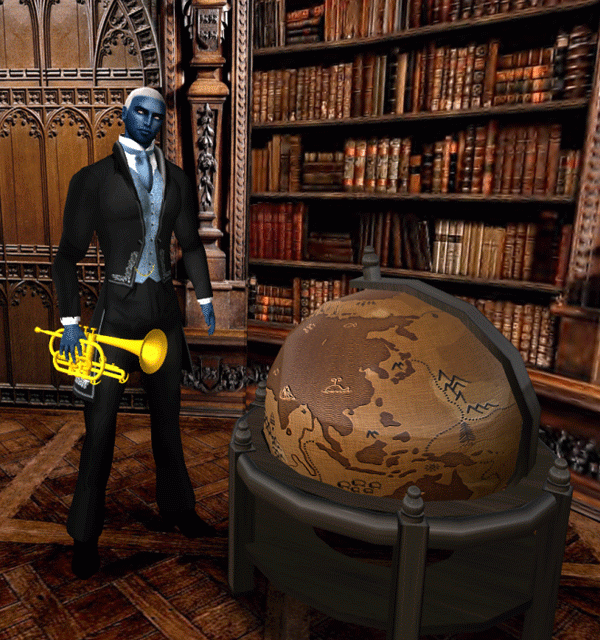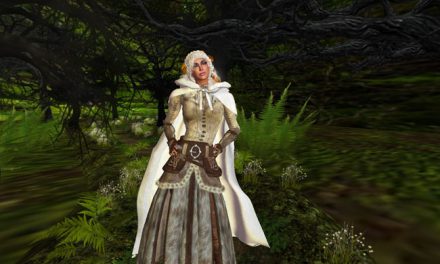 The Tale of the Golden Horn
The Tale of the Golden Horn
By
Steve Carr
His hands withered with age and years of captaining his yacht in the open seas, Jerome ran a chamois cloth around the bell of the horn, making its gold surface gleam. With the bell pipe sitting on his lap, he held onto the tuning slides, his bony fingers tapping the metal nervously. Stooped over, his back deformed by injury and rheumatism, the mouthpiece was only inches from his thin, parched lips. He placed the chamois cloth on the stand next to the zebra skin high back chair where he was sitting and ran his tongue around his parched lips. He shifted the horn slightly and brought the mouthpiece to his mouth. He inhaled, filling his lungs damaged by aspirating too much salt water, and put his lips on the mouthpiece and blew into the horn. A single weak and discordant note came out of the bell.
He sat back uncomfortably and gazed at the horn with a mixture of wonder and frustration. “Damo, come hang up the horn,” he called out.
Nine feet tall, Damo ducked slightly to avoid hitting the top of the door frame as he came into the room, bowed, and in his deep baritone voice said, “Did you call, sir?”
“Yes, Damo, I want you to return the horn to its place above the fireplace,” Jerome said. “And mind your fingerprints.”
“As you wish, sir,” Damo said. With his gigantic hands he gently grasped the horn by the circular bell pipe and carried it to the fireplace and hung it onto a felt tipped hook. He stepped back and observed the way the light dimly reflected off the gold. He readjusted it slightly, then stood back and smiled as the horn glowed a brilliant golden yellow.
“Tomorrow is the time for The Great Calling,” Jerome said. “We must be vigilant and make sure that the horn remains safe as we have always done.”
“Yes sir,” Damo said. “I will guard it with my life.” Damo bowed and left the room.
Jerome rose from his chair and wearing his seal skin slippers and floor length Chinese made red silk robe embroidered with green dragons, he began shuffling around the room. He ran his hand over the collection of coral from the Great Barrier Reef that he kept on a small, round antique teak table. He peered into the bottles containing miniature ships that he kept on shelves along with centuries-old leather bound volumes of ships and sailing. Tapping on the glass of the large fish tank that held a hundred different varieties of rare, colorful fish he stared at them with a sense of yearning. At the table where a variety of sextants were kept in felt lined jade and ivory boxes, he placed his hand on the globe sitting on a marble pedestal and spun it. It came to rest with the continent of Africa showing. He put the tip of his gnarled fingernail on South Africa.
* * *
With warm winds blowing from the west, Jerome stood on the dock and took one last look at the supplies he had stowed in his yacht, The Traveler, then put it in a brown leather satchel with other documents and maps. He crossed the plank to the deck of the yacht and stood there displaying his tanned, bare muscular chest thinking how dashing he looked, but annoyed that none of the newspaper reporters had come to take his picture or write of his departure. He tossed the satchel into the cabin, then checked the bundled sails, then untied the dock line. Getting behind the wheel he turned on the engine, and as the waters churned beneath the hull, he steered the boat away from Cape Town and out to the waters of the Atlantic Ocean.
It was early morning and the bright blue water glistened. He shut off the engine and raised the sails. Seagulls circled and swooped overhead, and as he passed the cargo ships and other pleasure craft he rang the brass bell that sat on the dashboard just above the wheel. The eastwardly winds filled the sails and by late afternoon he couldn’t see any of the coastline of Africa even with a spyglass or binoculars. Dolphins and whales followed behind and alongside, adding their vocalizations to the sounds of the waves of the open sea.
For those first few days he lowered and tied up the sails only at night. He slept on the deck, with just a blanket under him. Before going to sleep he stared up at the millions of pinpricks of white starlight in the black sky and followed the course he was taking using the stars. During the day he manned the sails or sat on the edge of the deck and sketched the fish that accompanied him, including marlin, stingray, sawfish and sharks.
On the eighth day the daytime sky grew dark as night and lightning streaked across the underbelly of mountainous storm clouds. As torrential rain began to fall and with the engine off and the sails secured and the small anchor lowered, he sat in the cabin as the yacht was tossed on the violent waves. The bottles and cans in the cupboards noisily clanked against each other as the ocean battered the sides of the boat and washed over the deck. The storm lasted for two days, during which time the anchor snapped off, the masts were broken and the engine rendered inoperable by the force of movement of the yacht and the flooding of the engine compartment.
When the storm was over, Jerome climbed out of the cabin as sunlight was breaking through white tufts of morning clouds. Sitting on the deck and combing her long shimmering yellow hair with a broken comb was a mermaid. She lazily flapped her fin on the deck.
Astonished, Jerome said, “I thought you were just a myth.”
She gazed at him appraisingly then began to chirp, not unlike that of a songbird.
“I’m not understanding what you’re saying,” he said. “My name is Jerome Vonderkerr. I’m from America but I just left South Africa.”
Looking at him with a mixture of curiosity and bewilderment, she tilted her head and began to chirp again.
Jerome pointed in all directions then at her and said, “Where do you come from?”
She looked in all directions then pointed to the southeast.
Putting his hands together as if in prayer, pleadingly he said, “I’m stranded. Can you help me?”
She tossed the comb into the water, then put her hands together and nodded knowingly. She slid to the side of the deck then dropped into the water. At the front of the yacht she grabbed onto a docking rope with her teeth and began to swim, pulling the yacht southeasterly.
* * *
For two days and nights non-stop, the mermaid pulled the yacht through the sea, stopping only at times to swat away a shark or to chirp with dolphins. At mid-day, Jerome stood on the deck and with the spyglass to his left eye he spotted a volcano surrounded by a white sandy beach in the middle of the vast expanse of water.
“Land, land,” he yelled joyously.
With the rope in her mouth, the mermaid looked over her shoulder, smiled and chirped. As they got closer to the volcano first one, then two, then many other mermaids joined the mermaid pulling the yacht. They were joined by whales, seals, dolphins and schools of tropical fish. Flying above them all were flocks of gulls, macaws, parakeets, albatross, canaries and finches. The air was filled with the music of their combined songs.
Even closer to the volcano, elves with gossamer wings joined the birds as did swarms of potbellied putti strumming golden harps and hand sized fairies playing tin whistles and flutes.
Lowering the spyglass and scanning the volcano it appeared dead or dormant. On its slopes from the base up to the caldera, were thousands of nests made of twigs or mud, tiny thatched huts sitting on rock outcrops, and small trees with branches covered with perching birds.
On the beach, wizards, trolls, ogres and leprechauns shouted and jumped up and down. Unicorns raised their horns, whinnied melodically and beat the sand with their hooves.
A few yards from the beach, the yacht came to rest. Jerome jumped into the water and walked to the shore. The creatures all around him and above him made a circle. A female elf alighted in the sand in front of him.
“Welcome to our refuge,” she said.
Surprised, Jerome said, “You speak English.”
“I and my kind speak all languages,” she said. “We have not had a mortal on our island for many, many years. I am Fardaree, the queen of the refuge.”
“I’m Jerome, a world traveler,” he said. “Where is this island?”
“It floats on the ocean’s currents, so where it is now is not where it will be tomorrow,” she said. “Come along and I’ll take you into the interior of our refuge.”
Walking behind Fardaree and followed by many of those who had greeted him at the beach, Jerome entered the volcano through a tunnel at its base. He walked out onto the floor of the cavernous volcano that was bustling with activity. Too numerous to count, there were many of the same kinds of beings he had already seen. They climbed up and down the phosphorous covered walls of the volcano using long ladders made of vines or hemp, going from one hut or nest to the next. Most of them carried some object that had been discovered and brought up from the ocean’s floor, including parts of sunken ships, old chests, sails, fish nets, tin pots, sailors’ uniforms, muskets, and cannon balls. The noise they made was almost deafening.
“What is everyone doing?” Jerome asked.
“It’s the time of The Barter,” Fardaree said. “We barter those things we no longer want for things we won’t want next year,” she said. “It assures that everything is kept in good condition and nothing is ever wasted or thrown away.”
On top of an obsidian boulder in the center of the floor was the gold horn that gleamed in the glow of the phosphorescent light.
“Is that bartered also?” he asked.
“Certainly not,” Fardaree said. “Every hundred years the horn is blown to guarantee the survival of all that have sought refuge here from a world we no longer have a place in. If music wasn’t sounded from it during The Great Calling, then we would all perish. The horn is the oldest thing in the volcano. It is said to have been handed down to the fae folks by the Gods of Olympus to guarantee the safety of all magical beings for all times as long as we play it on the first day of a new century. In fifty years the horn will be played again by someone chosen among us. ”
“It’s beautiful,” Jerome said. “What a trophy it would make for the hardships of a life at sea.”
* * *
After a month’s time, the yacht’s masts had been repaired by the trolls and the holes in the sails were stitched by the mermaids. Jerome had bartered a cup and saucer for the parts he needed to repair the engine with a wizard who collected such things. On the eve of his departure he sat on the beach and listened to the birds perform their nightly opera. When they and all the other creatures and folk on the island went to sleep, Jerome snuck into the volcano and removed the horn from its perch and carried it out to his yacht.
By morning, Jerome was far out at sea, with the horn safely stowed away beneath the cabin floorboards.
* * *
He spun the globe one more time, then turned to the large penthouse window. He pushed aside the heavy sea-green drapes and stared up at the stars that shimmered in the night sky. He then lowered his gaze to the lights of the cityscape that stretched out all the way to the horizon and plaintively sighed.
Damo entered the room carrying a Chinese teapot, cup and saucer on a silver platter. “I’ve brought your evening tea, sir,” he said.
Jerome turned from the window. “I was thirty-nine and very strong when I acquired the horn,” he said. “That was fifty years ago and much has changed since then.”
Damo set the tray on the stand next to Jerome’s chair and poured tea into a cup.
“I did an evil thing,” Jerome said. “I have all the riches a man could want and can have anything I want, but I can’t undo the wrong I’ve done, which I want to do with all my heart.” He shuffled to the chair and sat down. Lifting the cup to his tremulous lip, he said, “Rescuing you from that rock in the middle of the ocean is the only good thing I’ve done in my entire life.”
Damo bowed and left the room.
Jerome sipped the tea, then went to his bedroom and removed his robe and slippers and climbed onto his bed. He drifted off to sleep thinking about the island and its inhabitants.
Morning sunlight streamed through the bedroom window, filling his bedroom with a warm glow. He opened his eyes. Damo was standing at the foot of the bed and holding the horn.
“What are you doing, Damo?” Jerome said.
“Queen Fardaree had me placed on that rock by the wizards for you to find me,” he said. “Fifty years ago I was chosen to blow the horn.”
He raised the mouthpiece to his lips and blew into it. Out of the bell came the most beautiful sound that was ever heard.
Steve Carr, who lives in Richmond, Va., began his writing career as a military journalist and has had over a 120 short stories published internationally in print and online magazines, literary journals and anthologies. His plays have been produced in several states. He was a 2017 Pushcart Prize nominee. He is on Facebook https://www.facebook.com/profile.php?id=100012966314127 and Twitter @carrsteven960.




